Fact Friday 178 - Evolution of the Charlotte Skyline
Happy Friday!
Charlotte was originally founded in 1768 on the crossroads of two Native American crossroads, on the corner of Trade and Tryon, or Independence Square.
Since then, there have been three major periods of growth, the first was during Charlotte’s gold rush (1799-1849), the second was the building boom of the 1920s, and the third started in the late 80s and still continues today.
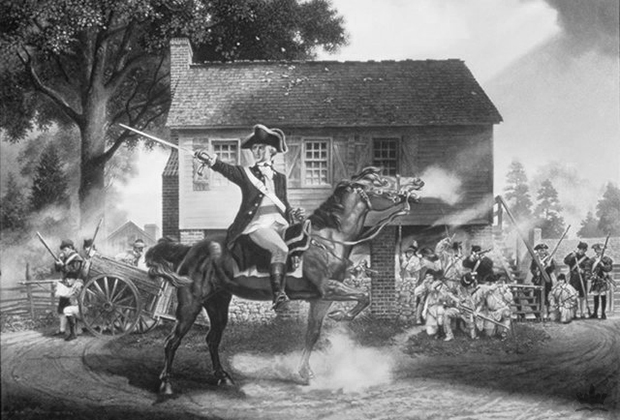
Uptown Charlotte at the intersection of Trade and Tryon on Sept. 26th, 1780.
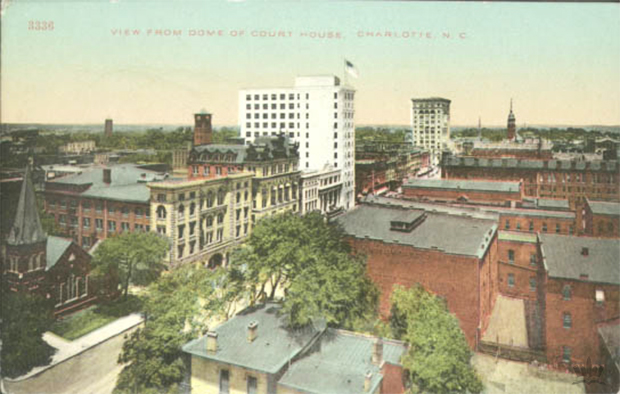
Uptown Charlotte in 1905.
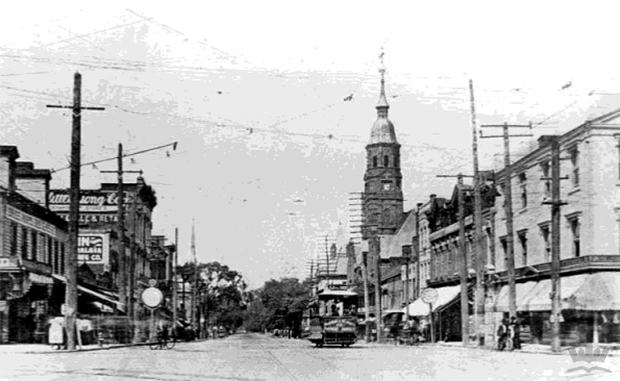
Uptown Charlotte in the 1920s.
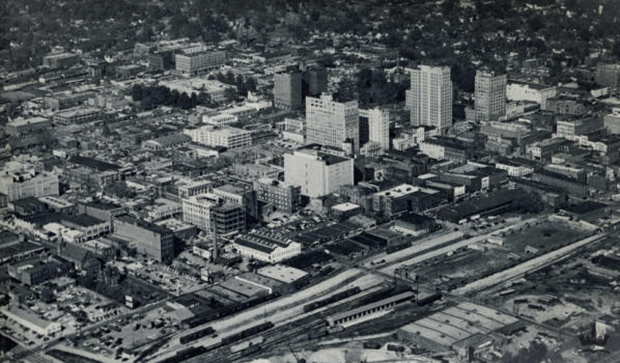
Uptown Charlotte in 1935 – the results of the building boom of the 1920s. You are looking toward the northwest. Along Tryon St., from top to bottom you can see the Independence Building (destroyed), First National Bank Building, Commercial National Bank Building (destroyed), Johnston Building, and the Wilder Building (destroyed).
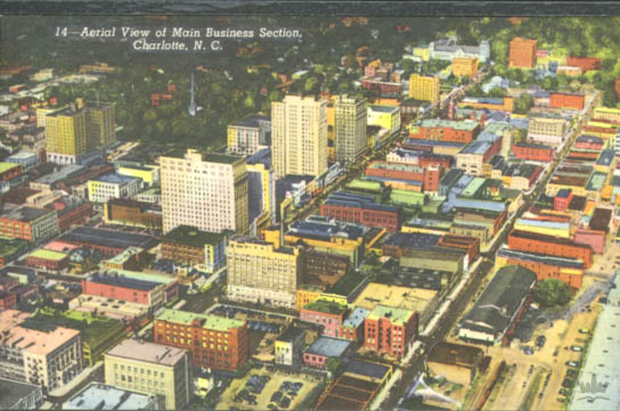
Uptown Charlotte in 1950.
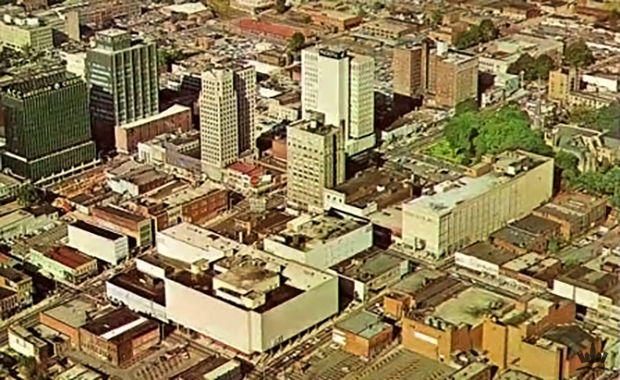
Uptown Charlotte in 1960.
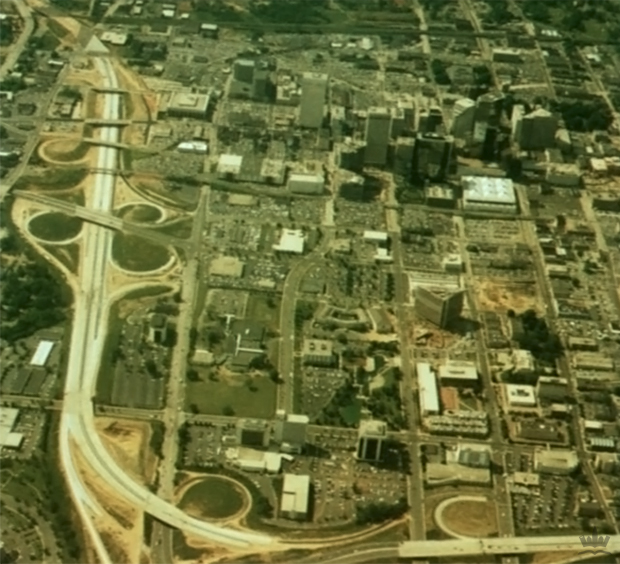
Uptown Charlotte in 1980.
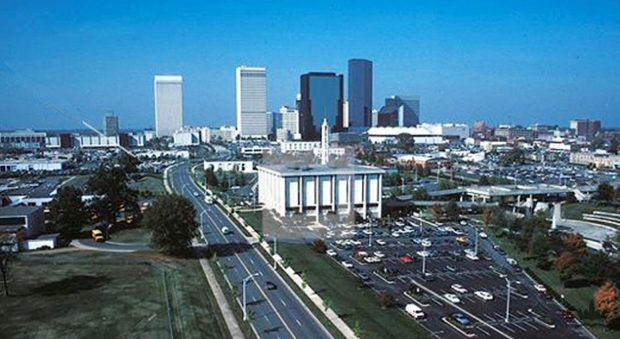
Uptown Charlotte in 1985.
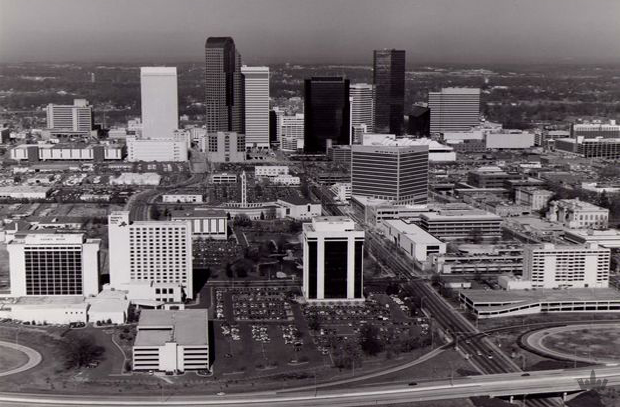
Uptown Charlotte in 1989.
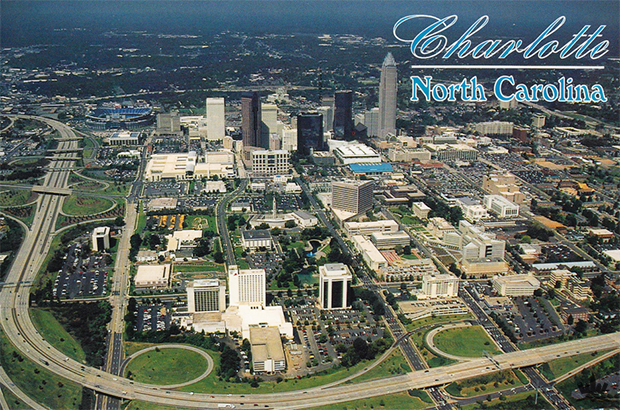
Charlotte in 1995 – just before the Hearst Tower (1999) was built.
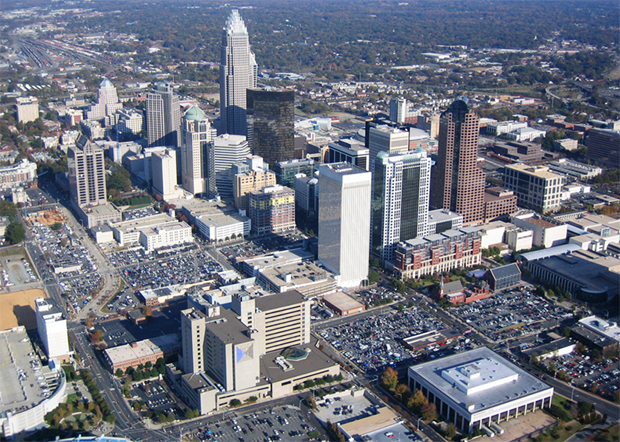
Charlotte in 2005.
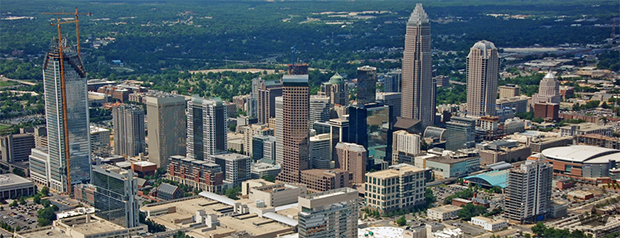
Charlotte in 2009.
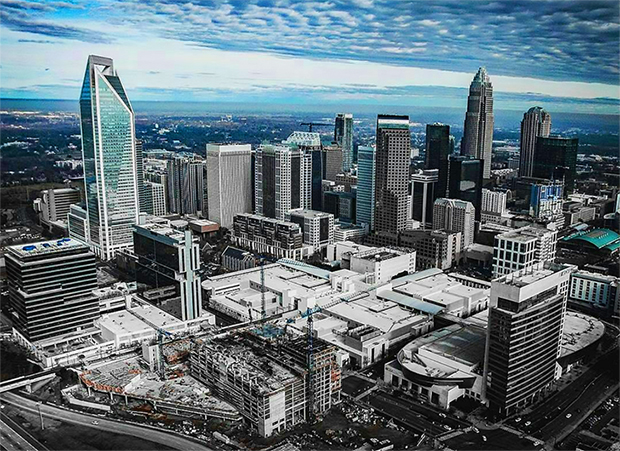
Uptown Charlotte, 2017.
Until next week!
Chris.
Email me at chris@704shop.com if you have interesting Charlotte facts you’d like to share or just to provide feedback!
Information taken from:
"These Historic Photos Will Show You the Growth of Uptown Charlotte", Scott Jensen, Charlotte Stories, July 17, 2017.
“We have to do with the past only as we can make it useful to the present and the future.” – Frederick Douglass




